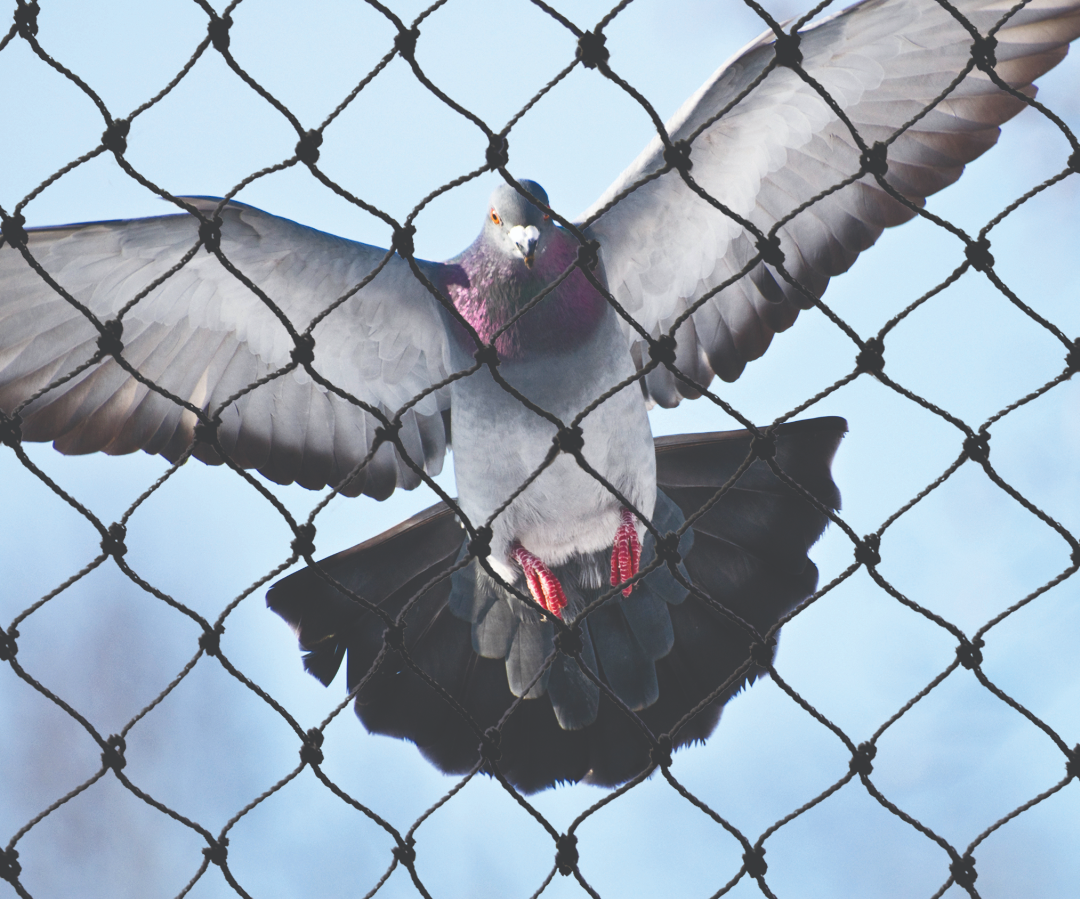Birds are fascinating creatures, celebrated for their graceful flight and melodic songs. However, when these feathered friends decide to make themselves home in your property or business, they can quickly become unwanted guests. From noise pollution to property damage, birds can present many problems.
Bird Netting is a solution that doesn’t involve drastic measures or harm to these creatures. In this blog post, we’ll delve into bird netting and how it is an effective and humane deterrent for keeping birds at bay.
The Avian Invasion
Birds are ubiquitous in our environment, and their instincts often lead them to seek shelter and nesting sites in places that happen to be our homes, gardens, commercial spaces, and agricultural fields. While they are a delight to observe in their natural habitats, their presence in these areas can lead to a variety of problems:
Health Hazards
Bird droppings can pose serious health risks, carrying diseases such as salmonella and E. coli. When birds nest near food production facilities, restaurants, or public spaces, the risk of contamination increases significantly.
Property Damage
Birds can cause extensive damage to buildings, machinery, and vehicles. Their droppings can corrode surfaces, and their nests can block ventilation systems, leading to costly repairs and maintenance.
Noise Pollution
Birds can be noisy neighbors, disrupting the peace and tranquility of residential and commercial areas. This noise pollution can lead to disturbed sleep, reduced productivity, and even stress-related health issues.
Crop Damage
Birds can wreak havoc in agriculture by devouring crops, leading to significant economic losses for farmers. This not only affects their livelihood but can also impact food availability and prices.
Enter Bird Netting
To address these challenges, many property owners, businesses, and farmers turn to bird netting as a humane and effective solution. Bird netting is a physical barrier made of lightweight and durable materials, typically polyethylene or nylon, designed to create a barrier between birds and the protected area. Here’s how bird netting works and why it’s an excellent choice for bird control:
Non-Lethal Deterrent
Unlike some traditional methods of bird control, such as poison or traps, bird netting is entirely non-lethal. It does not harm the birds but simply prevents them from accessing the protected area.
Customizable
Bird netting comes in various sizes and mesh configurations, making it highly customizable. This adaptability ensures that it can be tailored to the specific needs of your property, whether you need to protect a small garden or a vast agricultural field.
Versatile Applications
Bird netting can be used in a wide range of settings, from residential gardens and rooftops to commercial buildings, warehouses, and agricultural lands. It’s suitable for deterring a variety of bird species, including pigeons, sparrows, seagulls, and more.
Long-lasting Solution
When properly installed and maintained, bird netting can provide long-term bird control, offering a cost-effective solution that reduces the need for constant repairs and clean-up.
Installation and Maintenance
To ensure the effectiveness of bird netting, it’s crucial to have it installed by professionals who understand the behavior of local bird species. Here are some key considerations for installation and maintenance:
Proper Installation
Bird netting should be installed by experts who can identify potential entry points and nesting sites. The netting should be securely fastened to prevent birds from finding gaps or weak spots.
Regular Inspection
Regular inspections are essential to identify any damage or wear and tear in the netting. Prompt repairs can prevent birds from exploiting vulnerabilities.
Humane Removal
In some cases, birds may already be nesting in the protected area when bird netting is installed. In such instances, it’s important to consult with wildlife experts to safely and humanely relocate the birds.
Conclusion
Bird netting is a humane, eco-friendly, and cost-effective solution to the challenges posed by unwanted avian guests. Whether you’re a homeowner, business owner, or farmer, bird netting can help you reclaim your space from the inconveniences and damages caused by birds. By implementing this practical and ethical approach to bird control, you can enjoy the benefits of a bird-free environment while allowing these creatures to thrive in their natural habitats. So, when it comes to bird control, don’t wing it – choose bird netting and keep unwanted guests at bay.

